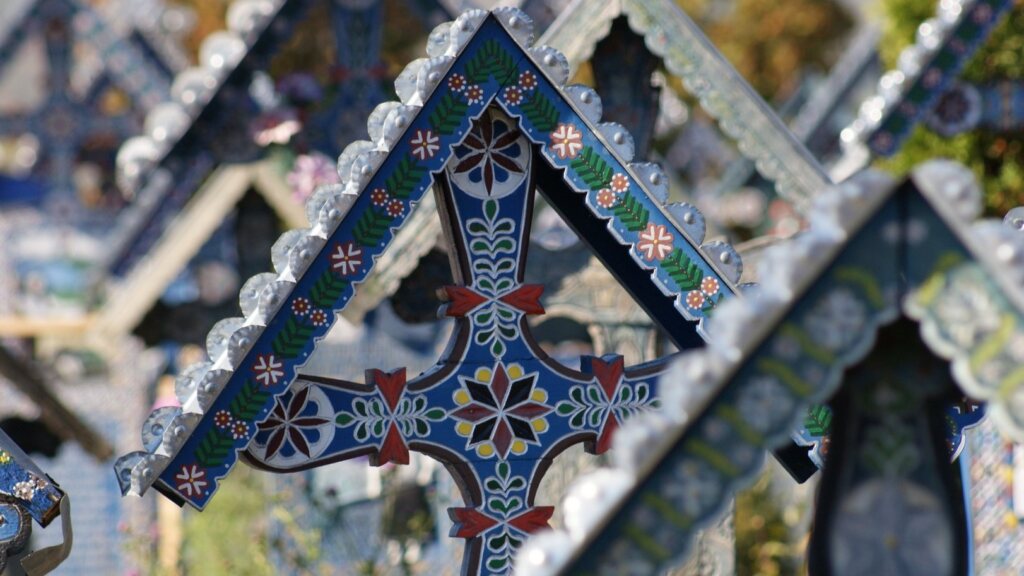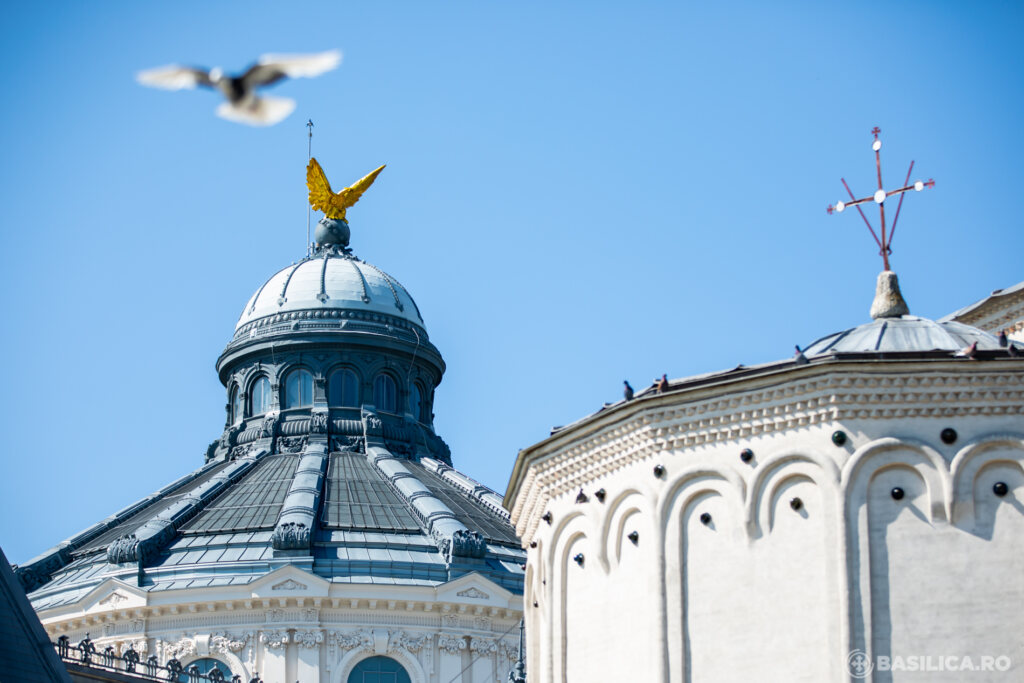On Monday, August 16, 2021, His Beatitude Patriarch Daniel addressed the participants of the “Celebration of Putna – 150. Continuity of an ideal” festivities organized at Putna Monastery. His message was entitled “Anniversary and commemoration for more Romanian communion.”
Patriarch Daniel’s message for Celebration of Putna – 150. Continuity of an ideal festivities: Full text
The spiritual and cultural manifestations that take place at the Putna Monastery, between August 14-18, 2021, under the title “Celebration of Putna – 150. Continuity of an ideal”, mark the 150th anniversary of the “First Celebration of Romanians Everywhere” and of the “First Congress of Romanian Students Everywhere” organized in Putna, in 1871, on the initiative of the poet Mihai Eminescu and other young students of his generation, such as the writer Ioan Slavici, the historian Alexandru D. Xenopol, the composer Ciprian Porumbescu and others.
1. The manifestations organized in Putna in 1871 constitute one of the decisive moments in defining the national identity of the Romanian people.
Mihai Eminescu and the young students of his generation lived in Romania then divided between three empires: the Austro-Hungarian Empire, the Tsarist Empire, and the Ottoman Empire.
Therefore, the burning desire of the Romanian youth was the national union of Romanians in a single state, a union that had begun in 1859 by uniting Moldavia with Wallachia and which would be completed only after the First World War, in 1918.
On the occasion of the 150th anniversary of the Putna Celebration of 1871, the “Putna Celebrations – 150. Continuity of an Ideal” is now taking place in 2021, with joy and hope, under the patronage of the Romanian Patriarchate and the Romanian Academy.
This event helps us understand that paying homage to or celebrating the great symbols and values of the Romanian nation is a permanent necessity for the cultivation of the consciousness of national unity and dignity in dialogue and cooperation with the peoples of the world.
2. The Romanian Orthodox Church had a significant contribution to promoting the consciousness of the spiritual unity of the Romanian nation.
It cultivated in the souls of the Romanian believers the vigilant consciousness that they have, as a nation, the same Daco-Roman origin, the same language, and the same mostly Orthodox Christian faith.
For centuries, the Metropolises of Wallachia and Moldavia were in close contact with Orthodox Romanians in Transylvania, by spreading church books, gave fraternal help in times of persecution, and held correspondence between hierarchs, personal connections between priests, monks, and pilgrims on either side of the Carpathian Mountains.
The consciousness of the national unity was strengthened, especially by translating and printing the church books in Romanian.
The Romanian Orthodox Church donated service and teaching books in the people’s language, books that circulated in all Romanian provinces.
Romanian Orthodox hierarchs have often asserted in the prefaces of these books the ecclesiastical and ethnic unity of all Romanians.
Mihai Eminescu, knowing well the life and history of the Romanian people, as well as the role of the Church and the Christian faith in the development of Romanian culture and language as a living garment of the teachings of faith and liturgical worship, called the Orthodox Church “the spiritual mother of the Romanian people, who gave birth to the unity of language and the ethnic unity of the people (…)”; being “the keeper of the Latin element (…) which has established and unified our language in such an admirable way that we are the only people without any actual dialects (…)”.
Therefore, the Romanian language and the predominantly Orthodox Christian faith are fundamental components of the identity of the Romanian people.
3. In the current context, when Bessarabia and northern Bukovina are outside Romania’s borders, but especially when over four million Romanians have emigrated to the West, our people’s ideal of unity and fraternal communion requires more intense cultivation.
Therefore, the Holy Synod of the Romanian Orthodox Church proclaimed 2021 as the Solemn Year of the pastoral care of Romanians outside Romania, and in the Pastoral Letter of the Holy Synod read this year on the Sunday of Orthodoxy, this cultural, patriotic, and missionary event that took place in 1871 at Putna Monastery, founded by the Holy Ruler Prince Stephen the Great, was recalled.
Only a good knowledge of national identity and dignity helps a nation develop and survive in history, cultivating a dignified and valuable dialogue with other peoples.
In this sense, it is necessary to know and defend the essential elements of the identity of the Romanian people, the natural beauties of Romania, and its rich experience of peaceful multiethnic coexistence (especially in Transylvania and Dobrudja).
4. The pilgrimage of young Romanians from the country and abroad to Putna Monastery on August 14-16, 2021, is a beautiful affirmation of the Romanian unity of thought and feeling.
We congratulate all those who keep this profound feeling, those for whom being away from the country does not mean alienation, but keeping in mind and feeling the Christian faith and Romanian cultural values.
The initiative of Putna Monastery and the Romanian Orthodox youth organizations in the country and abroad regarding the organization of events marking the 150th anniversary of the First Celebration of Romanians Everywhere shows that love of motherland means at the same time prayer and communion, affection and action for Romania.
The spiritual treasure of the hearts of Romanians everywhere can become a joy for Romania’s present and future if we unite faith with action, love of nation with interethnic dialogue, and freedom with solidarity.
We congratulate His Eminence Archbishop Calinic of Suceava and Radauti, Archimandrite Melchisedec Velnic, the abbot of Putna Monastery, the young people in the Initiative Committee, and all those who contributed to the organization of this spiritual, missionary, and cultural events in Putna, as well as all those who participate in these events.
We pray to the Most Holy Trinity to protect all and give them good health and happiness, peace and joy, creativity and good deeds, through the intercessions of the Most Holy Mother of God, of the Holy Prince Stephen the Great, a symbol of the dignity of the Romanian nation, and all the saints.
With chosen appreciation and paternal blessing,
† Daniel
Patriarch of the Romanian Orthodox Church
Foto credit: Basilica.ro / Mircea Florescu
Follow us on Twitter: @BasilicaNews






